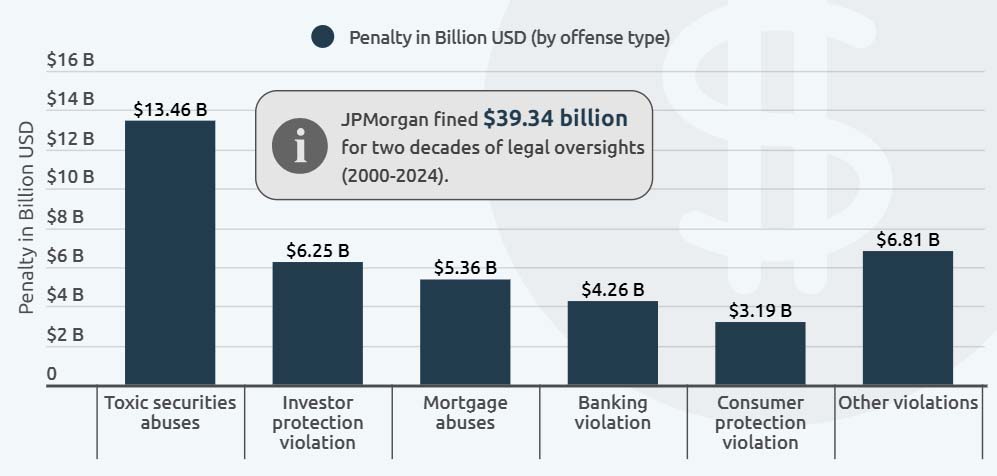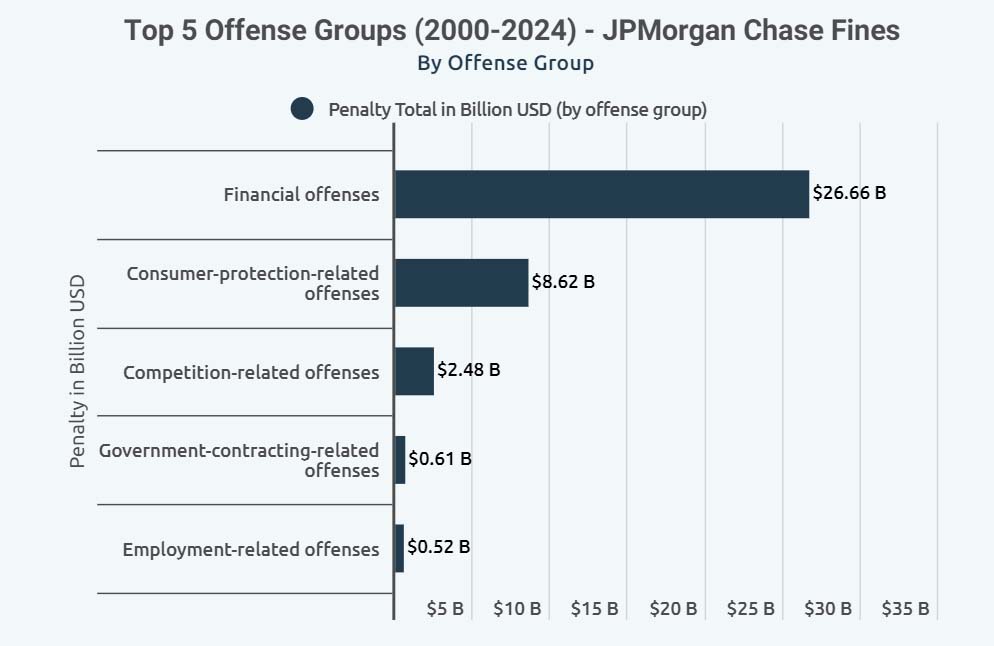U.S. banking giant JPMorgan Chase (NYSE: JPM), at the centre of major regulatory breaches affecting key elements of its operations, has incurred fines totalling $39.34 bln for various violations from 2000 to 2024, according to data compiled by Finbold.
This situation is threatening the institution’s reputation and financial position and has led to the bank incurring substantial fines from various regulators.
The largest fine, amounting to $13.46 bln, was related to toxic securities abuses. Failure to comply with investor protection policies resulted in a fine of $6.25 bln, followed by $5.36 bln for mortgage abuses.
Additionally, banking violations led to fines totalling $4.26 bln during the same period. Consumer protection violations ranked fifth at $3.19 bln, while other breaches resulted in losses of $ 6.81 bln, according to the Finbold estimates.
 A breakdown of offense categories reveals that financial violations accounted for the highest amount, totalling $26.66 bln across 117 records, followed by consumer protection at $8.62 bln from 63 records.
A breakdown of offense categories reveals that financial violations accounted for the highest amount, totalling $26.66 bln across 117 records, followed by consumer protection at $8.62 bln from 63 records.
As documented in 28 records, competition-related violations amount to $2.48 bln, while government-contracting violations stand at $0.61 bln from a single record. Employment-related offenses rank fifth, totalling $0.52 bln from 50 records.
Intrigues behind hefty fines
The Finbold research explored possible intrigues behind JPMorgan’s heft fines incurred over the past two decades.
“The cost of fines incurred by JPMorgan Chase is hefty, and it complements the fact that such institutions operate in a complex environment, and occasional legal issues may arise due to the intricate nature of financial markets, transactions, and regulatory compliance,” explained Finbold’s banking analyst, Justinas Baltrusaitis.
“When violations occur, they are typically addressed through legal proceedings, settlements or regulatory actions. The lack of adequate internal controls, combined with a failure to address misconduct promptly, has potentially allowed unethical practices to play out over the years, resulting in hefty fines.”
Baltrusaitis added that there is a likelihood of an increase in the number of fines in the future, given that regulators are implementing measures to curb violations, including introducing approaches such as whistleblower programmes. 









